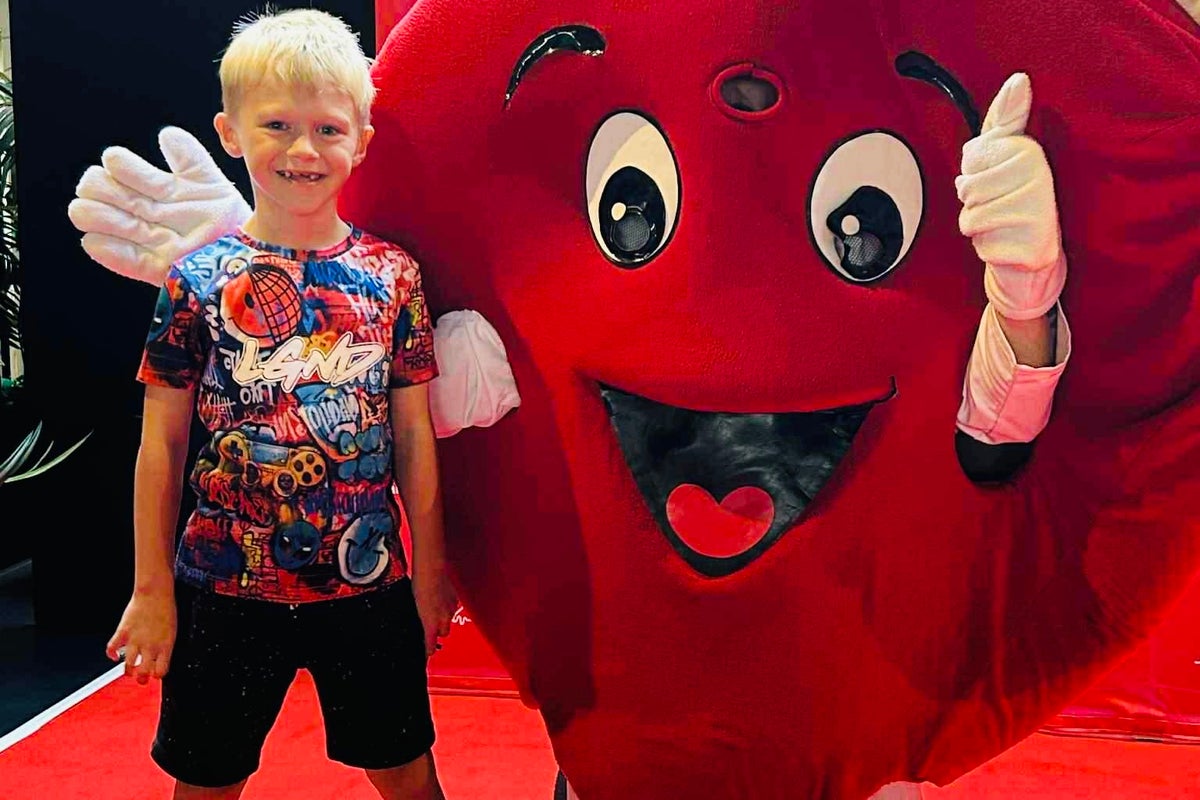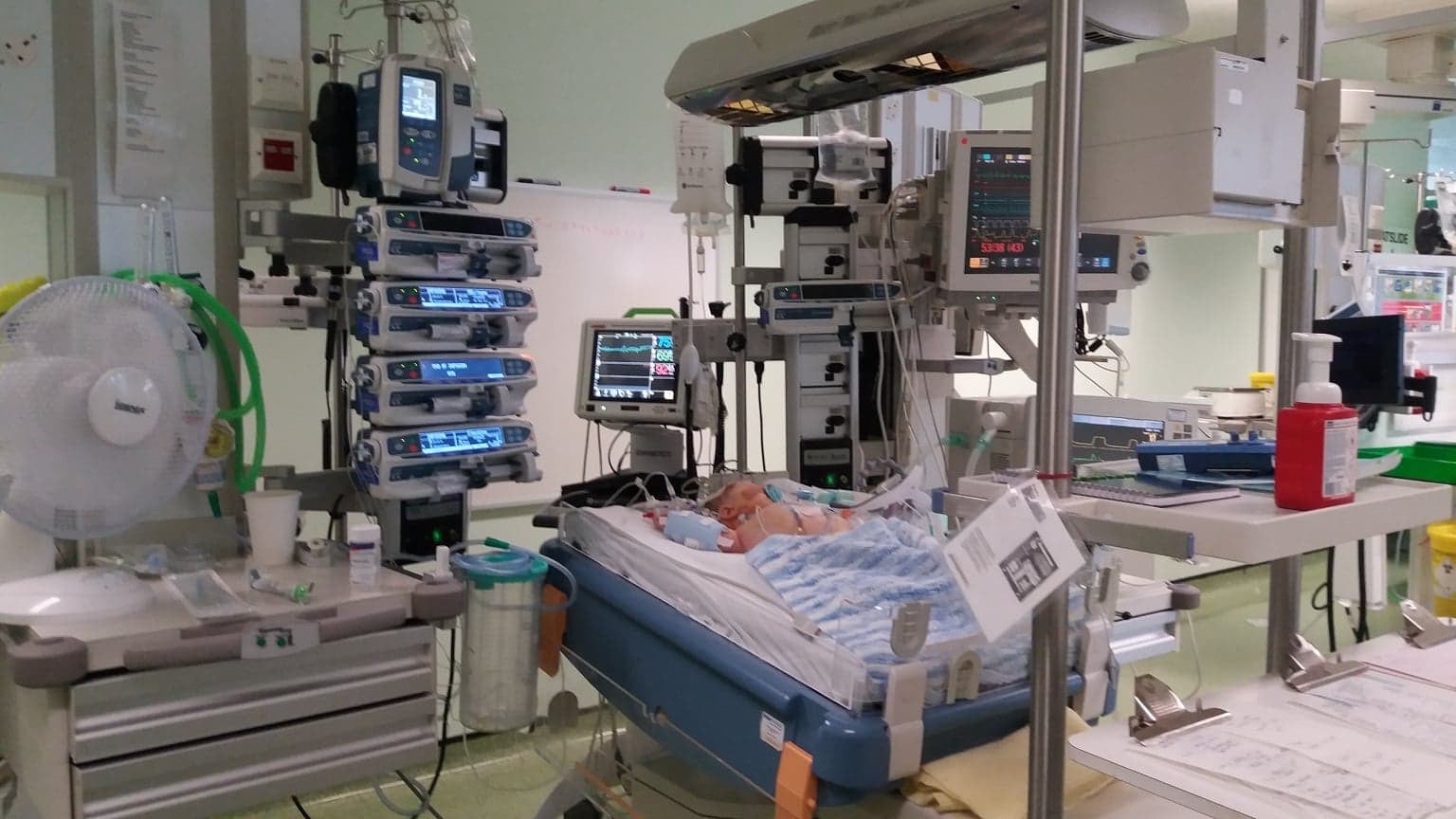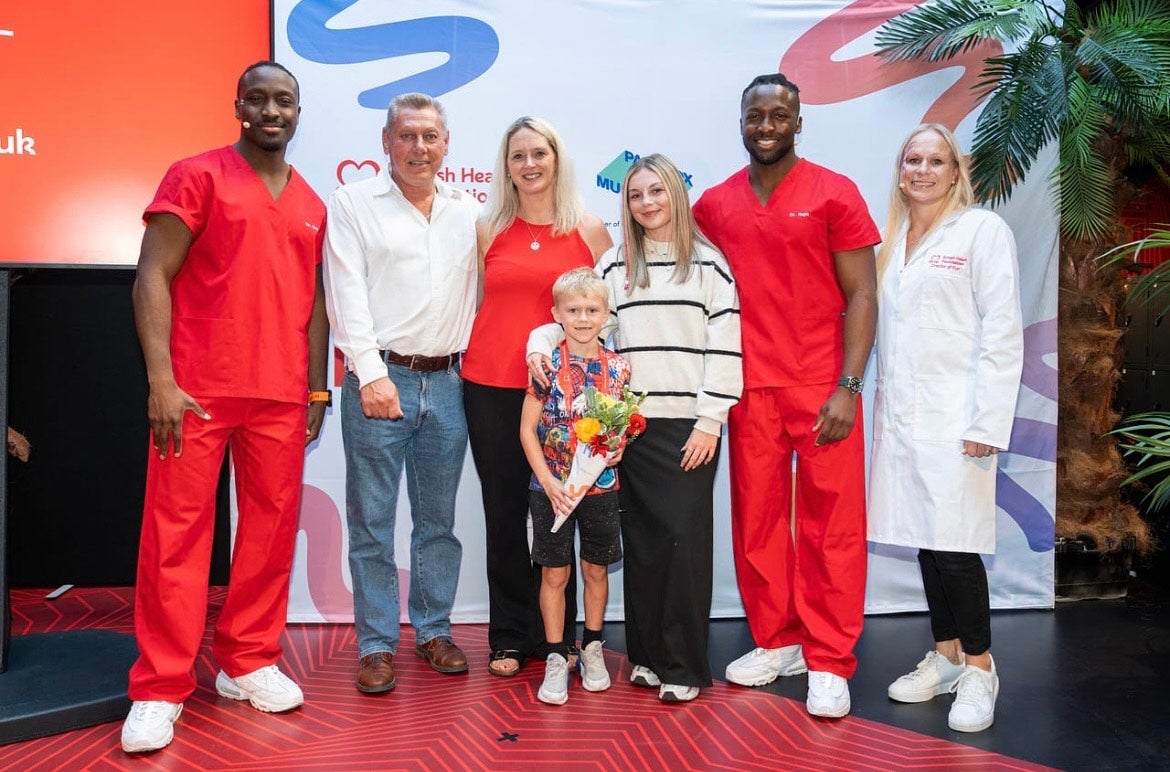
A mother has recalled the fear she felt when her son was rushed into surgery at just 10 days old – with a tiny heart the size of a walnut.
Eddison Watts, from Norwich, was diagnosed with a heart defect called Tetralogy of Fallot during his mother’s pregnancy, where blood would not flow around his body properly.
It is one of the most common heart defects, affecting approximately one in every 3,600 births in the UK, according to the British Heart Foundation (BHF). It causes babies to be born with a hole in the heart and a narrowed pulmonary valve, with the main artery of the body growing in the wrong place.
In most cases, children will have surgery to treat Tetralogy of Fallot when they are at least six months old. But Eddison needed lifesaving open-heart surgery when he was under two weeks old, as he had a large hole in his heart.
Eddison’s mother, Jo Watts, told The Independent: “It was an unknown and scary time. When they operated on his heart, it was the size of a walnut.”

The 43-year-old mother of three explained that she was told her baby had a heart problem during a scan, but they could not identify the nature of the issue. It wasn’t until a later specialist foetal cardiology scan at Great Ormond Street Hospital in London that they were given the diagnosis.
“We’ve got two older daughters who are heart-healthy and were normal pregnancies, so being told at the 20-week scan that something is wrong with your baby’s heart was very overwhelming and very hard,” she added.
“We were always given the impression that he would need surgery when he was about six months and was a better weight, but unfortunately, it didn’t go that way.”
She explained it was a normal birth, and after five days in hospital they were sent home. But eight days later, a neonatal nurse visited and found his oxygen saturations were drastically low – a common side effect of Tetralogy of Fallot, which means less oxygen is carried around the body.
Ms Watts and Eddison were taken by the children’s acute ambulance service from Norfolk and Norwich University Hospital to Evelina Children’s Hospital in London for emergency surgery, where surgeons “patched up the big hole in his heart”, Ms Watts explained.

Now aged seven, Eddison has an annual check-up at Great Ormond Street Hospital, and he will need valve replacement surgery in his teens.
“His heart does pump harder than the average child because it’s working harder to keep up,” Ms Watts added.
“He loves his football and he joined a local team, but he’s at the point where, after strenuous, long activity like half an hour of training, he knows when he has to stop. So there are limitations, but he’s starting to become more aware of that now as he’s getting a bit older.”
Eddison, who is a pupil at Cawston Primary School near Norwich, has been named a Young Heart Hero by the BHF in recognition of his fundraising efforts and courage in the face of a serious heart condition.
He inspired his school and local bowls club, of which his father Graham is a part, to raise more than £650 for the charity. Eddison was one of a small number of children from across the UK to be honoured at the BHF’s Young Heart Hero Awards, held at the Paradox Museum in Knightsbridge, London, in September.
Eddison said: “I wanted to help other children like me. It was really exciting to win a Young Heart Hero Award and I had a brilliant day at the museum.”
The award’s ceremony meant Eddison met other young children with heart problems just like him, which was a source of reassurance – something Ms Watts would have appreciated when her son was diagnosed.
“I did say at the hospital after he was born that if there was ever another family to go through what we did, I would be more than happy to talk because I feel there’s a lack of support there for families with that diagnosis,” she said.
Before the BHF existed, the majority of babies diagnosed with a severe heart defect in the UK did not survive to their first birthday. Today, thanks to research, more than eight out of 10 diagnosed children survive to adulthood.
I was forced to carry my baby for a week after he died. Where’s the humanity?
New research reveals impact of extreme heat on women and future pregnancy
Reducing one ingredient in your child’s diet can benefit their adult heart health
Biology teacher becomes first UK patient to receive ‘gamechanger’ therapy for MS
Starting HRT years before menopause could cut health risks, study finds
FDA approves new pill for menopausal women to treat hot flashes and night sweats







